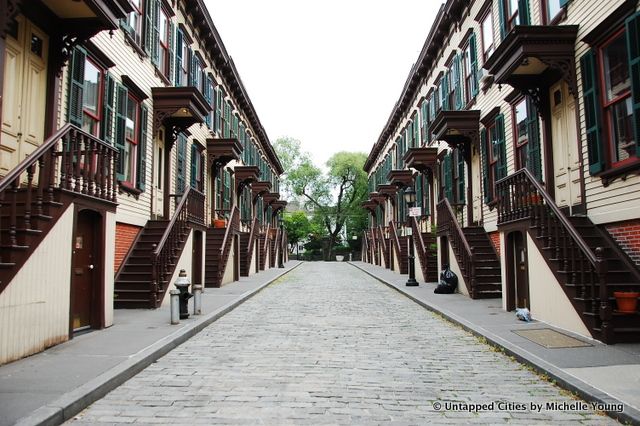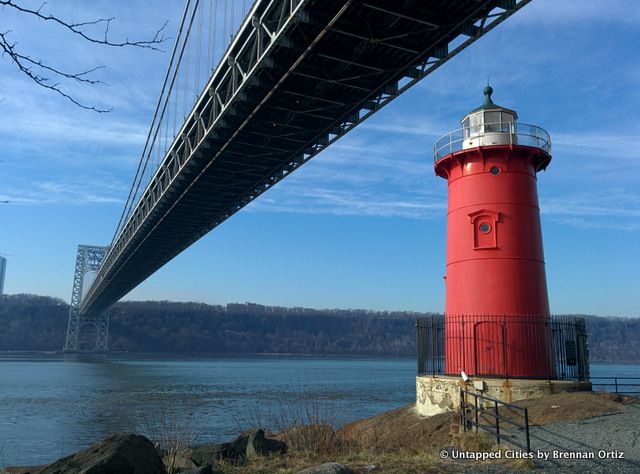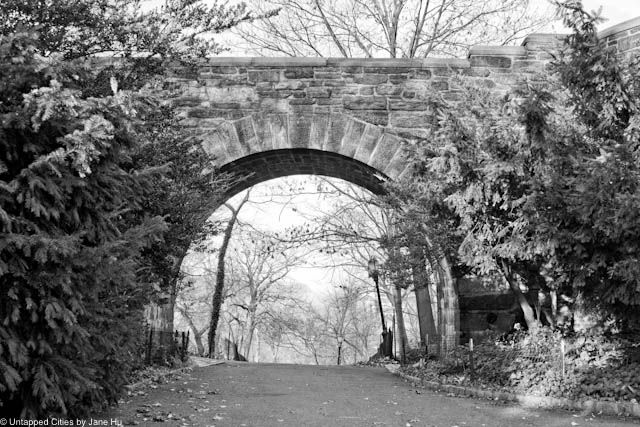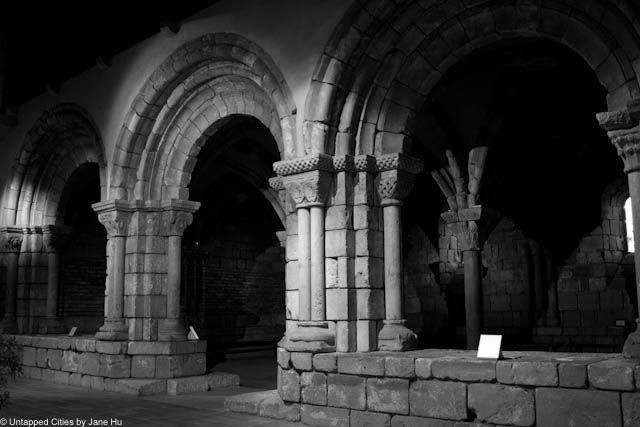

Sylvan Terrace in Washington Heights.
Welcome back to our new Untapped Cities series on NYC’s Micro Neighborhoods, where we delve into long standing ethnic enclaves.
Little Dominican Republic
Washington Heights, Manhattan
Amidst the hills of Upper Manhattan, one can find New York’s Little Dominican Republic. The Washington Heights neighborhood, also referred to by locals as “The Heights,” is pleasantly nestled between Fort Washington Park (whose secrets are revealed here) and Highbridge Park. Sharing the northernmost tip of Manhattan with its sister neighborhood Inwood, both communities hold one of the greatest concentrations of Dominicans not only throughout the five boroughs, but outside of the Dominican Republic. The migration of Dominicans into this section of the city has resulted in one of the most culturally vibrant neighborhoods on the island of Manhattan.
The Washington Heights neighborhood is bordered to the south by Harlem at 155th Street and to the north by Inwood at Hillside Avenue. At its eastern and western points, the neighborhood is cut off by both the Harlem and the Hudson Rivers. Both the A, the C and 1 subway lines allow access to the neighborhood, the latter of which runs along bustling Broadway. The 191st Street Station on the 1 line is the deepest subway station in New York City, at 180 feet below street level.
The neighborhood is among the most distinct in Manhattan due in part to its hilly landscape, which also holds the highest elevated point in Manhattan at 265 feet above sea level at what was the location of Fort Washington. This ‘hood also holds history evident in its name, appropriately titled after America’s very first president, George Washington (whose tooth can be found here!), who set up camp in the location during the Revolutionary War.

Although Washington Heights saw many Irish immigrants and European Jews escaping Nazism back in the early 1900s, the neighborhood then witnessed an influx of Dominicans after the 1960s. It was then that the Dominicans became the majority in the neighborhood and here they established one of the most recognized ethnic enclaves throughout the city.
In the 2000s, Washington Heights saw a loss in its population due to neighborhood woes such as crime, and gentrification, both of which pushed many Dominicans across the Harlem River into neighborhoods like University Heights and Morris Heights in the Bronx. In recent years, the population of Dominicans has still been predominant in the neighborhood, even now when a new demographic presence is settling into the area.
Washington Heights flaunts its traditional character proudly. It is visible in the plentiful flags of the Dominican Republic hung in apartment windows. Once in the neighborhood, Spanish becomes ubiquitous. Terms often used by Dominicans such as “Dimelo” and “Que lo que” (both Spanish for “What’s up”) are heard down every block. Spoken Spanish is only faded out by the ascending volume of Bachata, a Latin musical genre originating from the Dominican Republic, blasting from vehicles and apartment buildings alike. Here, you’ll observe families and friends congregating in the streets, dancing in the nearby parks, or people watching. It is a neighborhood of families and neighbors whose culture resonates throughout.
Broadway serves as Washington Heights’ main commercial artery with a number of mom and pop specialty shops, Dominican cuisine locales, along with more recognized chain retailers. Among the numerous eateries, El Malecon proves to be a more popular presence in the neighborhood specializing in authentic Latin cooking. El Malecon features traditional Dominican dishes such as “mangu” or mashed green plantains, and “sancocho,” which is Dominican-style stew.
For those in search of a more sophisticated dining experience, consider Saggio on 181st Street. You can’t go wrong with its intimate dimly lit atmosphere and delicious array of Italian entrées. These and many more now cater to an evolving community in the neighborhood and have become frequent destinations for Harlem dwellers and others who live throughout the city.
Not only can Washington Heights impress its residents with an immersive cultural ambiance, but it also grants visitors access to ample nature and parkland not found in much of Manhattan. To the west, overlooking the Hudson River and New Jersey Palisades, there is Fort Washington Park. Home of the George Washington Bridge and its lesser known Jeffrey Hook’s Lighthouse, Fort Washington Park features beautiful views of the Manhattan shoreline. Not far east, is Highbridge Park, site of New York City’s oldest standing bridge, the High Bridge.


Regardless of your plans in the neighborhood, Washington Heights is sure to leave visitors with no deficiency in cultural enlightening. Whether it be indulging in the many Dominican eateries, marveling at the artistic institutions or just taking in the green space, Washington Heights holds its own as one of New York City’s most unique neighborhoods.
Get in touch with the author: @Brennan_NYC

